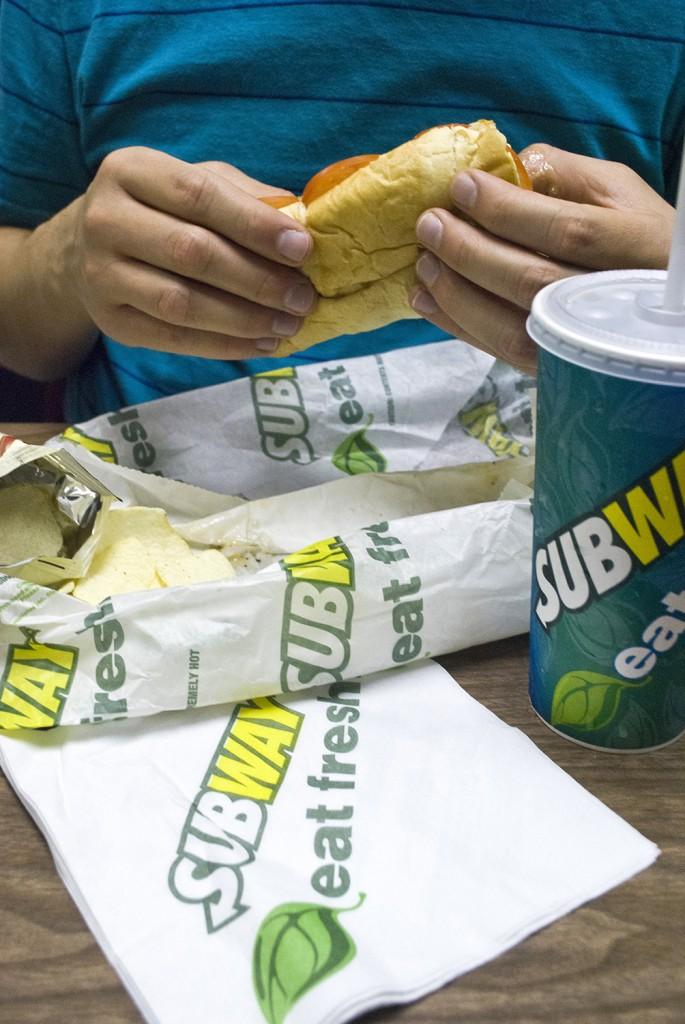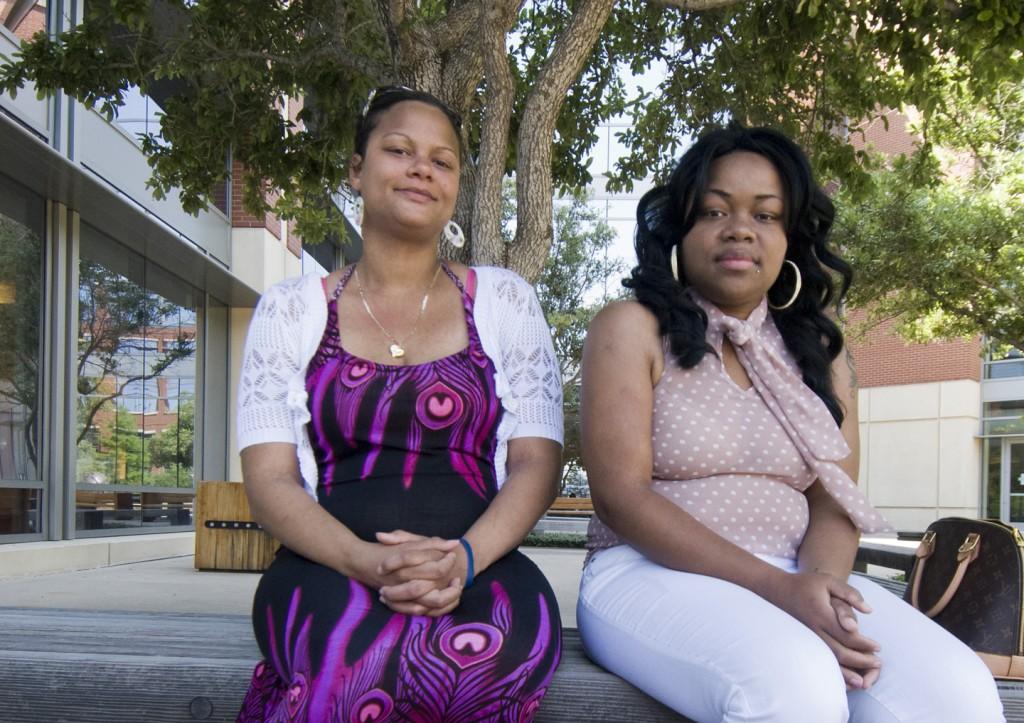 By Joshua Knopp/managing editor
By Joshua Knopp/managing editor
When SE Campus student Marquita Wilson learned that Educational Catering Inc, the catering company that currently runs the TCC kitchens, was being replaced with Subway, she freaked out.
“Oh, hell no,” she said. “They [ECI] have the greatest baked potatoes there. Their baked potatoes are almost better than Jason’s Deli. I’ll protest.”
It was revealed at the board meeting April 19 that Subway would take over the cafeterias on NE, NW, SE and South campuses to save money for TCC, reduce student costs and increase healthiness of the food offered.
The projections also indicated a 10 percent increase in sales. TCC reported bringing in $121,000 last year with the current model but project to receive $85,000 in revenue in Subway’s first year. The profit from ECI was offset by $134,000 in repair and replacement costs incurred with ECI’s use of kitchen facilities, leaving TCC in a deficit. The district expects to pay $7,000 in repair and replacement costs with the Subway model.
According to business services director Kimberly Lambert-Thomas, who has been working on the deal with Subway since August, some of the repairs were large, one-time costs replacing old equipment, but the rest was maintenance and repair work. If TCC didn’t change its model, other large one-time costs would be incurred soon, Lambert-Thomas said.
“Due to the age of the campuses, TCCD would soon have to replace these items and more at all the campuses if we continued with the current food service model,” she said.
The presentation to the board projected that all campus kitchens would make a combined $2.8 million the first year of the new model based on projected enrollment, current sales and Subway’s forecast of how franchises typically fare when introduced to a new market. The kitchens combined to make $1.4 million between August and March, Lambert-Thomas said.
Part of the college’s basis for making the change was a survey on satisfaction with ECI conducted via CampusCruiser and Facebook August 19-29. The dates were chosen to coincide with registration activity, said director of marketing and public relations Frank Griffis. The survey garnered 850 responses and showed unhappiness with the quality and value of the food and menu selection.
Some students, like Shresha Johnson on South Campus didn’t know about the survey. Johnson is upset that students don’t have control over the change.
“Students are the majority here, and they should have had the choice or been able to speak on the topic,” she said. “I don’t want to eat just Subway.”
NW’s Rose Salazar thought that narrower selection would be an issue.
“Honestly, I don’t like the idea at all,” she said. “The food now is a nice selection. To just limit it to subs is not something I would look forward to. You’re just limited to bread, and that’s it.”
Though health concerns were a key factor in bringing in Subway, healthiness isn’t inherent in the menu. Sandwiches can be slim if ordered consciously but can also be unhealthy, said NE campus health and physical education instructor Eli Koenn.
“The choices that ECI was offering, [students] would normally choose the less healthy option,” Koenn said. “But I think that’s also the nature of our society to go with what they’re comfortable with. I’ll agree that Subway is one of the healthier options out there, but I still think it should be consumed in moderation.”
According to nutritionex.com, 12-inch subs can range from a best-case scenario with assorted nutrients and only four grams of fat to a worst-case scenario with 1,100 calories and two and a half days worth of sodium. Subway will also offer personal pizzas, which contain 45 percent of the daily value of both saturated fat and sodium, and hot dogs, which are new to the chain and don’t have nutritional information readily available.
Contrary to the goal of reducing student costs, NW student Paul Anderson worries about price.
“I like Subway, but it’s kind of expensive,” he said. “I don’t want to be broke on sandwiches.”
Reaction wasn’t all negative, however. NW student Jonathan Mendoza thought well of the change.
“I’m for it,” he said. “Fatty foods like french fries and chicken tenders don’t keep you awake in class. I’m kind of a health nut, so I like the idea of food that provides healthy, sustained energy.”
Thomas Pineda of NW favored the change, but with a reservation.
“I think it’s a good idea, but I’m going to miss the guys here,” he said.
On South Campus, LaQuinta Dears thought that it was a bad idea because change isn’t needed.
“People like hot cooked food, food that is cooked on the spot,” she said. “It may be a healthier option, but they don’t need to fix what isn’t broken.”
Only TR Campus will have a full-service provider although a contract has not yet been signed. Celesa Kimbriel of TR Campus was relieved that Subway was not going there.
“I’m glad that we’re not getting it because I like the food in the cafeteria,” she said. “There’s more variety here.”
























